Internews’ Earth Journalism Network (EJN), an organization training journalist on how to cover environmental issues more effectively, hosted a training session for journalists from Tuesday, April 9th through the 14th, focusing on data and general fisheries reporting. The sessions served to better capacitate a group of selected journalists from Belize, Mexico, Guatemala, and Honduras, along with experts and conservationists. The workshops were held at the Best Western Biltmore Plaza Hotel in Belize City.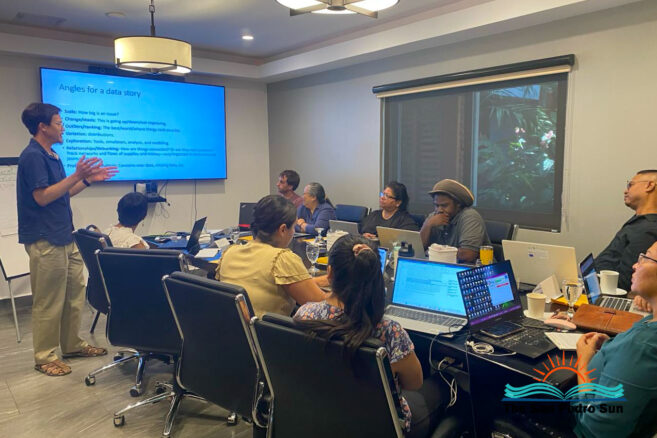
Presentations and discussions touched on fisheries data and information on fisheries in Belize and the Mesoamerican region (from Mexico to Honduras). Participants from different media houses, including The San Pedro Sun, attended the workshop, which introduced different data collection methods in person and through online platforms. Invited presenters from organizations such as Oceana Belize, COBI, and the Statistical Institute of Belize, including the Belize Federation of Fishers (BFF), led some sessions. The journalists also spoke with Belize’s Ombudsman Major (Ret’d) Herman Gilbert Swazo regarding his office and understanding of the Freedom of Information Act. Like the others, this session was very interactive, and Swazo made himself available to assist reporters in accessing any specific information, particularly from governmental offices.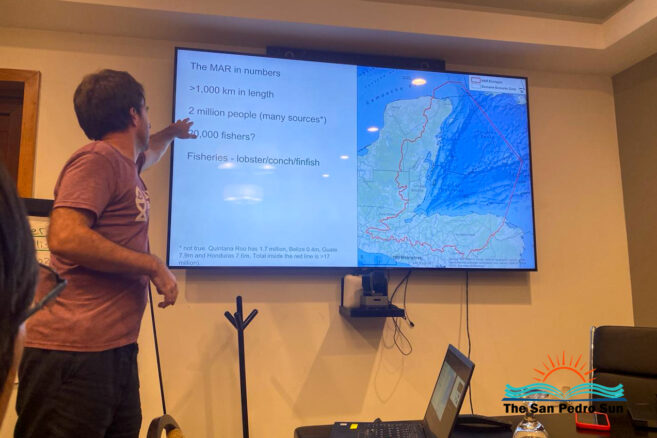
EJN’s Special Projects Editor Sam Schramski, overseeing the training along with his colleague editor Lucy Calderon, said the media plays an essential part in disseminating the correct information, in this case, fisheries. “We believe that increasing the quantity and quality of environmental journalism is fundamental these days, particularly in light of the climate crisis and biodiversity crisis that surrounds us on a daily basis,” said Schramski. He added that the more journalists in Belize and the region learn about these topics, the better they will relate these concepts to their audiences.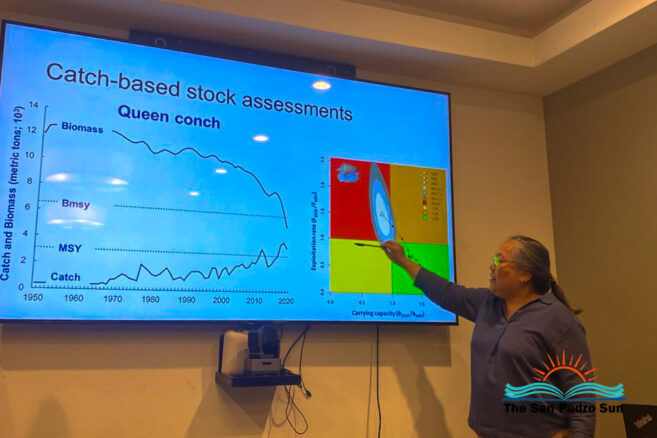
Schramski said that fisheries connect everyone in Belize. “If you are not eating fish, you are fishing or related to a fisher,” he said. Schramski looks forward to well-rounded investigative stories based on ideas discussed during the workshop. These will be robust articles about the fisheries issues affecting fishers in Belize and others about the wider Mesoamerican region.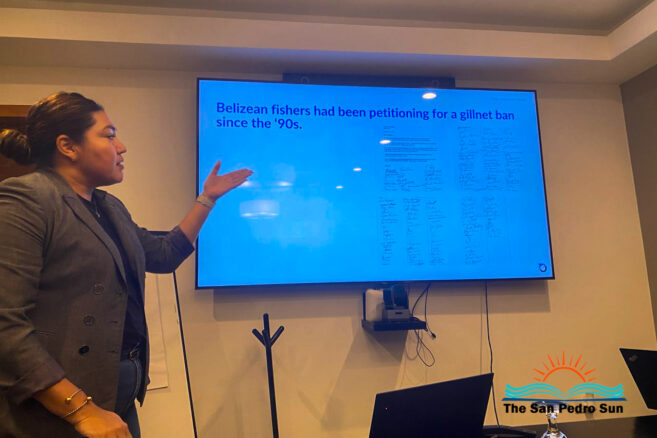
EJN believes people must understand how vital fisheries are in Belize and how the future may not be as bright due to overfishing and decreased fish stock. As such, they find it imperative for media houses to continue monitoring and keeping fisheries issues noticeable to benefit the local societies and improve everyone’s conditions.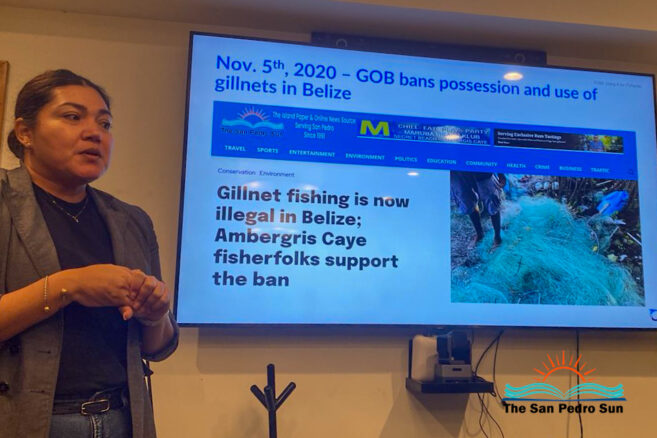
The workshops included a field trip to Middle Long Caye with the Belize Federation of Fishers to meet and interview local fishermen. EJN will also support journalists with story grants, encouraging them and their respective media houses to work on these fisheries’ topics and highlight in detail the challenges this sector and fishermen are currently experiencing.
Earth Journalism Network hosts environmental reporting workshops for Belizean and regional journalists
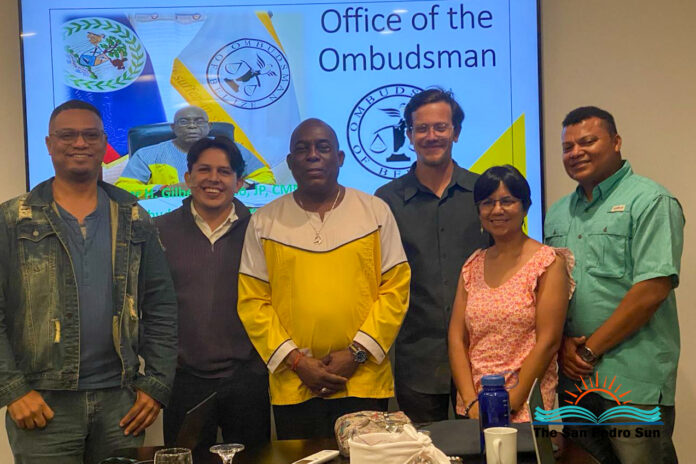
Share
Read more

